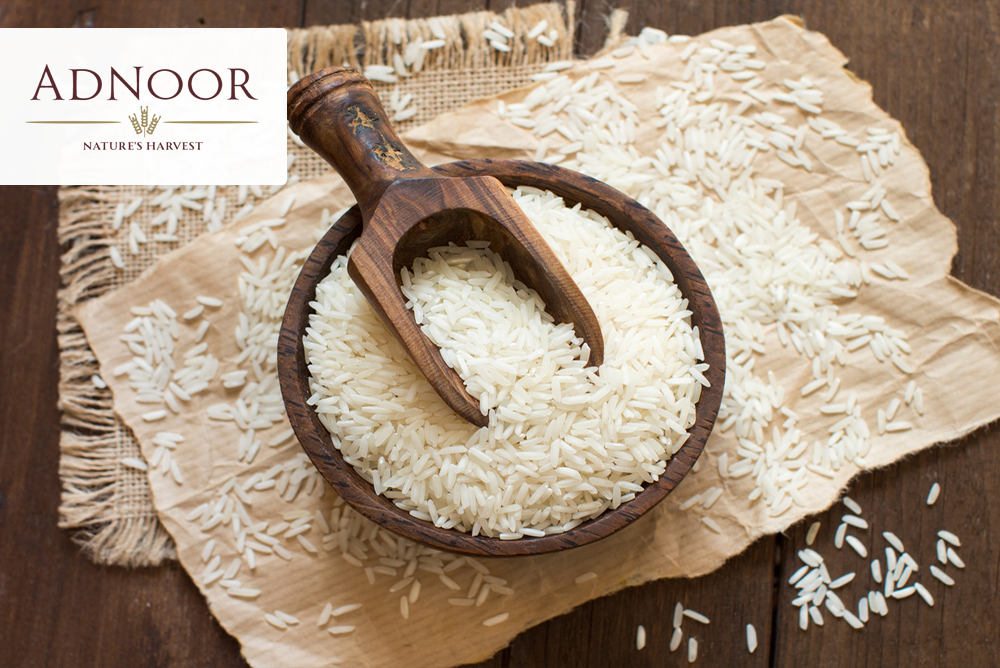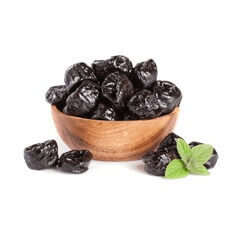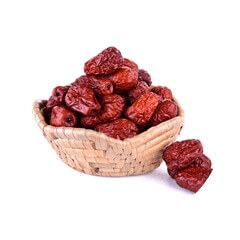Is Basmati Rice Healthy?
Basmati rice is a common type of rice in Indian and South Asian cuisine. Available in white and brown varieties, it is known for its nutty flavour and pleasant aroma.
Still, you might want to know whether this long-grain rice is healthy and how it differs from other types of rice.
The following article closely examines basmati rice, its nutrients, health benefits, and potential downsides. So, continue reading the article and know almost everything regarding basmati rice.
Nutritional Benefits of Basmati Rice
Although the exact nutrients vary depending on the particular type of basmati, each serving is generally high in carbohydrates and calories, as well as micronutrients like folate, selenium, and thiamin.
One cup, which is 163 grams of cooked white basmati rice, contains the following:
- Calories: 210
- Protein: 4.4 grams
- Fat: 0.5 grams
- Carbohydrates: 45.6 grams
- Fibre: 0.7 grams
- Sodium: 399 mg
- Folate: 24% of the Daily Value (DV)
- Thiamine: 22% of DV
- Selenium: 22% of the DV
- Niacin: 15% of DV
- Copper: 12% of the DV
- Make: 11% of the DV
- Vitamins B6: 9% of the DV
- Zinc: 7% of the DV
- Phosphorus: 6% of DV
- Magnesium: 5% of DV
Conversely, brown basmati rice is slightly higher in calories, carbohydrates, and fibre. It also provides more zinc, magnesium, vitamin E, potassium, and phosphorus.
Note: Basmati rice is generally high in carbohydrates and micronutrients like thiamin, folate, and selenium.
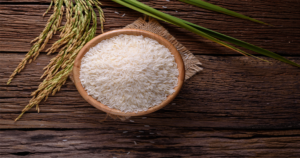
Potential Health Benefits of Basmati Rice
Several health benefits are associated with basmati rice.
Low in Arsenic
As compared to other types of rice, basmati rice is generally lower in arsenic. This heavy metal can potentially harm your health and increase your risk of heart problems, diabetes, and certain cancers.
Arsenic accumulates more in rice than in other grains, which can be of particular concern for those who eat it regularly. However, some studies have shown that basmati rice from India or Pakistan contains some of the lowest arsenic levels compared to other rice varieties. Also, it must be noted that brown rice varieties are higher in arsenic than white rice because arsenic tends to accumulate in the hard outer bran layer.

Can Be Enriched
White basmati rice is often fortified, which means particular nutrients are added during processing to help increase its nutritional value.
This can help make it easier to meet your needs for various essential vitamins and minerals. Particularly, rice and other grains are often fortified with iron and B vitamins like thiamine, folic acid, and niacin.
Some Types Of Basmati Are Whole Grains.
Brown basmati is considered a whole grain, containing all three parts of the kernel, i.e., the germ, bran, and endosperm. Multiple health benefits are associated with whole grains. For example, an analysis of 45 studies linked whole grain intake lowers the risk of heart disease, cancer, and premature death.
Another review linked regular consumption of whole grains, like brown rice, with a lower risk of type 2 diabetes.
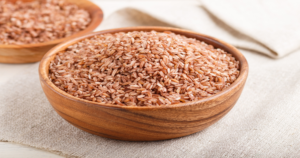
What’s more, an 8-week study of 80 people revealed that replacing refined grains with whole grains lowered levels of inflammatory markers.
Note: Basmati contains less arsenic than other types of rice and is often fortified with vital vitamins and minerals. Brown basmati rice is also considered a whole grain.
Potential Disadvantages of Basmati Rice
Unlike brown basmati rice, white basmati rice is a refined grain, which means it has been stripped of many vital nutrients while processing. Some studies says that eating more refined grains may impair blood sugar control and be associated with an elevated risk of type 2 diabetes. Additionally, a study of more than 10,000 people linked diets that included white rice to a higher risk of obesity.
Moreover, a study of 26,006 people linked white rice consumption to a higher risk of metabolic syndrome, a group of conditions that can increase your risk of heart disease, stroke, and diabetes by type 2.
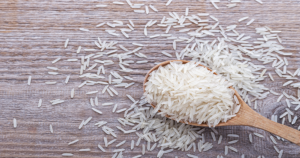
These effects may be due to the high carb count of white rice and the low amount of fibre compared to brown rice.
Therefore, while you can enjoy white basmati rice in moderation, brown basmati rice may be a better overall option for your health.
Note: Refined grains like white basmati rice are associated with a higher risk of obesity, type 2 diabetes, and metabolic syndrome. It is, therefore, best to consume them in moderation.
Basmati Vs. Other Rice Types
You can compare basmati rice with other types of white or brown rice in terms of nutrients.
Although very small variations may exist in the number of calories, carbohydrates, protein, and fibre between particular types of rice, it’s not enough to make a big difference.
That said, basmati generally contains less arsenic, which may make them a good choice if rice is a staple in your diet.
As long-grain rice, it is also longer and thinner than short-grain varieties.

Its nutty, floral aroma and soft, chewy texture work well in many Indian and Asian dishes. It is an excellent choice for rice puddings, pilafs, and sides.
Note: Basmati rice is nutritionally similar to other types of rice but contains less arsenic, and its unique aroma, taste, and texture make it a good choice for Asian dishes.
Conclusion Regarding Basmati Rice:
Basmati is an aromatic long-grain rice that contains less arsenic than other types of rice. It is sometimes enriched with important vitamins and minerals and is available in white and brown varieties.
You should select brown basmati whenever possible, as refined grains like white basmati are associated with several negative health effects.
Visit the ADNOOR website to get the best long-grain rice, golden Sella basmati rice, brown rice, white rice, Super Kernel Basmati Rice, nuts, seeds, and dried fruits. We take pride in saying that we are the Best Basmati rice brand in Canada and have been the importers, exporters, wholesalers, distributors, and co-packers of various nuts and grains in Canada for the last 25 years. So, without wasting time, visit our website and order what you need.

